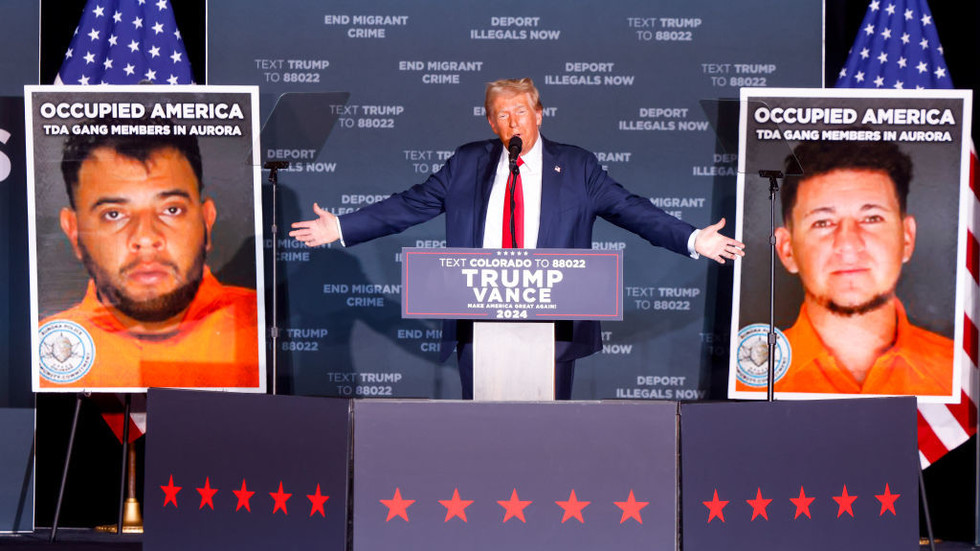Former US President Donald Trump has intensified his anti-immigration stance, particularly targeting Vice President Kamala Harris for what he describes as her role in allowing illegal immigration to thrive. In a recent rally in Aurora, Colorado, Trump went so far as to propose the death penalty for immigrants who kill American citizens or law enforcement officers, insisting that if he returned to the presidency, he would take aggressive measures to eliminate foreign criminal gangs from the United States. This rhetoric is part of a broader narrative that seeks to blame current immigration policies, particularly those of the Biden administration, for a perceived increase in crime in areas heavily populated by immigrants.
During the rally, Trump highlighted Aurora as a case study of his grievances, asserting that the influx of approximately 40,000 Venezuelan immigrants since 2022 has transformed the suburb into a hub for Venezuelan criminal gangs. While many of these immigrants entered the US illegally, it’s important to note that a significant number have been granted authorization to live and work in the country under a temporary scheme initiated by the Biden administration. Trump has amplified his rhetoric around this issue by characterizing Aurora as “occupied” and citing an uptick in gang-related crimes as a consequence of lax border enforcement.
The surge in violent crime linked to gangs has indeed raised alarms among local authorities, but there are conflicting reports about the current state of gang activity. In August, concerns intensified when a local apartment complex owner publicly asserted that his property had been overtaken by members of the Tren de Aragua criminal organization. His claims were bolstered by video evidence and testimony from residents, although police categorized the gang activity in the area as “isolated.” Despite this, law enforcement did confirm that over a dozen individuals allegedly connected to this gang have been apprehended in recent raids, drawing varying responses from community members and political leaders alike.
Trump’s remarks at the rally included inflammatory language, accusing Harris of bringing “an army of illegal alien gang members and migrant criminals” into American neighborhoods. He suggested that her policies have facilitated their resettlement in communities, urging supporters to see the supposed consequences of these immigration policies firsthand. His proposed “Operation Aurora” aims to expedite the removal of these criminal elements, echoing promises made in the past regarding an ambitious deportation scheme if he were to reclaim the presidency.
The debate surrounding immigration policy has escalated, with Trump’s supporters citing statistics to corroborate claims that the number of illegal immigrants has surged under Biden’s administration. Estimates suggest that around 10.6 million new immigrants have crossed into the US since Biden took office, despite ongoing efforts to rectify the immigration system. Additionally, data from Immigration and Customs Enforcement (ICE) indicate that a considerable number of these entries involve individuals with criminal backgrounds, creating fear among communities about safety and security.
The rhetoric surrounding immigration is emblematic of a larger political strategy that aims to galvanize support from specific voter bases by framing immigrants as a direct threat to public safety. Trump’s proposals resonate with supporters who feel that current policies jeopardize their communities. On the other hand, opponents of such viewpoints argue that such claims often overlook the broader context of immigration and the contributions that many immigrants make to society, as well as the systemic issues that lead to crime, irrespective of immigration status. The dialogue surrounding immigration continues to remain highly charged and remains a pivotal issue in American political discourse.

